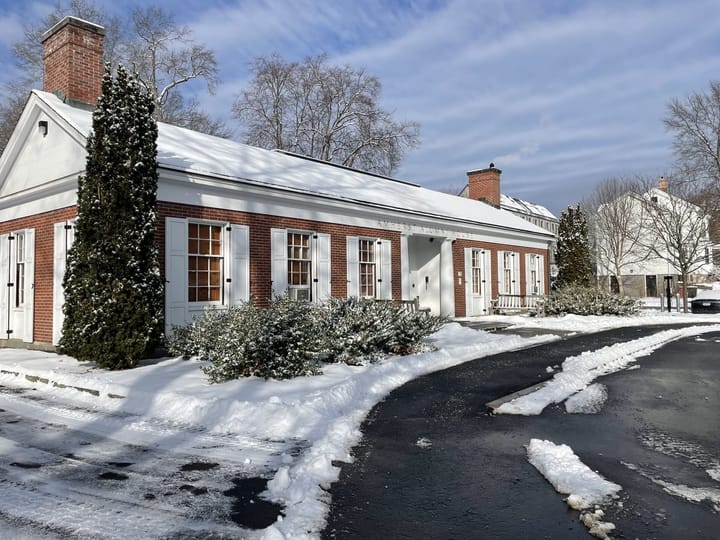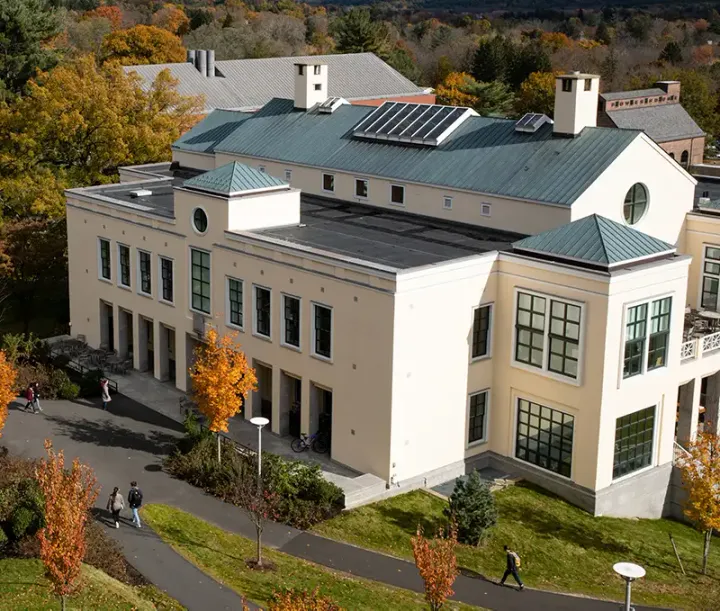Vagina monologues steps up
Such lack of discussion and personal awareness for women has been part of the motivation behind the production of most of Eve Ensler’s “The Vagina Monologues.” The Peer Advocates of Sexual Respect have been organizing a reading of this work for the past three years, but this year’s performance was the most successful in terms of interest from participants, audience members and, notably, men.
Since its publication in 1998, “The Vagina Monologues” has steadily grown in popularity worldwide, garnering a positive review from The Advocate upon its release. When she completed the “Monologues,” Ensler performed them as a one-woman show off-Broadway. A recent performace at Madison Square Garden raised over two million dollars for women’s charities.
The same trend has occurred in the Amherst community; when they were first performed in 1999, the audience was comprised of only 45 students, only one of whom was male. That year, the reading took place in Porter House, and was very intense and intimate, according to that year’s participants. Last year, they were held in Charles Drew House and this year in the Cole Assembly Room.
Peer Advocate Michelle Oliveros-Larsen ’02 has been involved in each of the past three productions, and said, “This year, we had less of a private reading, and it just gets better every year.” Unlike similar readings at the other Five Colleges, which have auditions, participation at the College is open to the entire student body. There was also a concentrated effort from the Amherst Feminist Alliance (AFA), whose members decided that they would like to help with this event to promote community awareness of women’s issues.
It was clear to any audience member this year that male interest in the event has increased substantially. An unexpected surprise for all, at this year’s reading almost a quarter of the audience was comprised of male members of the student body.
Men are even becoming involved past the commitment of an audience member, as Adam Roffman ’02 said, “Having seen four productions of The Vagina Monologues at various schools in the past as well as having directing several monologues this year at Smith, I really think that this year’s monologues at Amherst made a real difference in the community. You could tell from the audience reaction that they provoked all kinds of great emotion and conversation during and after the performance.”
In recent years “The Vagina Monologues” have been largely accepted as an excellent mode of education and raising awareness of a plethora of women’s issues, including sexual abuse, rape, domestic abuse and the still extant practice of female genital mutilation. Since Ensler’s compilation of personal essays cover such a wide range of issues, it is rare that a woman will remain untouched by at least one topic included in the “Monologues.” During the opening comments, Assistant Director of Health Education and Sexual Assault Counselor Gretchen Krull asked every audience member to raise their hand if they knew someone who had been sexually assaulted, or if they had been themselves. Nearly every single hand was raised. Explaining the popularity of the monologues, Oliveros-Larsen said, “It’s become a worldwide event because it covers worldwide issues.”
Some controversy was also raised by a certain piece, “The Little Cootie Snorcher That Could,” which detailed a 13-year-old lesbian girl’s sexual awakening via a sexual encounter with a 24-year-old woman. Several students discussed the concept that the situation is technically considered statutory rape, which might have been more apparent had the anecdote included men. Krull told The Student that she was glad that it sparked dialogue on related issues, and explained that “while there are cases where [a situation like this] are abusive, in this particular case it was something that enhanced this young girl’s life.”
Reactions to the monologues were overwhelmingly positive. “It was one of the first times in a long time that I sat in a room and was so proud that I was one of the women in the room instead of the men,” said Elaine Ewing ’04.
Krull’s hopes for next year include reaching more people, which could be achieved either by having two performances or by moving the performance into Buckley Recital Hall. “It’s important that people feel like they’re participating and not just watching,” she said. Ensler’s book has helped bring several important women’s issues to light in a way that fosters community discussion and activism. “If we were more comfortable with our sexuality we would have fewer problems with issues such as violence against women,” said Krull.





Comments ()